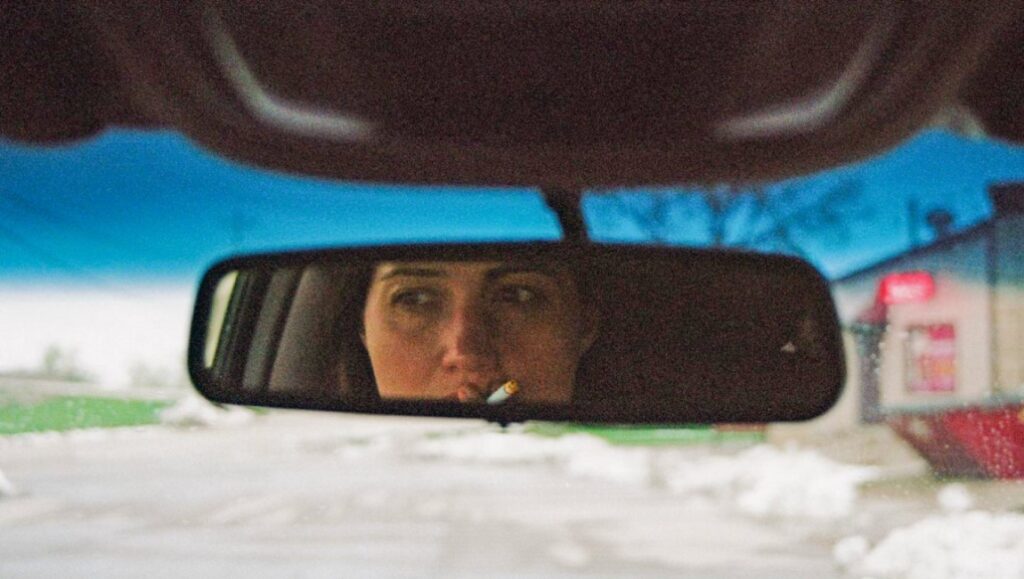Non-fiction scenarios and non-professional actors are often characterized as so rich and unpredictable that all a director needs to be is a receiver for what percolates in everyday life. But the world is full of contrivances, and a hack director can latch onto them as uncritically as a hack screenwriter will in the racing hours before production dates arrive. In the case of Morrisa Maltz’s The Unknown Country, a curious hybrid between these two approaches gives us a well-made narrative of grief, heat-pressed over the conveniences of interview-based non-fiction storytelling. In effect, it renders everything fictional. Lily Gladstone, for most of the movie the only professional actor on-screen, is sleeping out of her car on a spur-of-the-moment road trip after the death of her grandmother, with whom she was particularly close. (The exact proximity is left for a third-act reveal.) Along the way, she meets the proprietors of diners, gas stations, and dives, at which point the movie will seamlessly enter into a mini-portrait mode (with expositional interviews, each arriving at one moving anecdote, playing over shots of Gladstone inaudibly improvising her way through these encounters). It’s uneven, though it never sinks the movie.
That instead comes with the film’s title conceit, which seems to be a direct response to the NY Times style of reportage that swooped in on Middle America circa 2017 to produce portraits of aggrieved ambience away from the coasts. Like any intrepid explorer, Maltz has embarked with a set idea of what she’ll find in this project, and it’s a world of media narratives: KILI Radio reports on Trump, Epstein, and soybean shortages serve as transitional dispatches, Gladstone acts as a kind of interviewer of all she finds, and indie radio hits from the mid-2010s (Beach House, Slowdive, and Sarah Neufeld) soundtrack the high points of each charmingly banal episode. There’s a stronger narrative strand that enters the picture, in which Gladstone’s character (“Tana” in the credits, scare-quotes included) reunites with family for the occasion of a wedding. But this is handled just as clumsily, not in the sense that this isn’t Gladstone’s “real” family, or that the performances might not be as effortless as some other “hybrid” films, but that Maltz is uninterested in dealing with the problem her film has opened up. If we are presented with a narrative that produces a significant amount of doubt, the challenge isn’t to find a more uplifting smile, but to start somewhere else than the question that is thought to hide behind the screen-filling shot, early on, of a roadside American flag.
DIRECTOR: Morrisa Maltz; CAST: Lily Gladstone, Raymond Lee, Ali-Lopez Sohaili; DISTRIBUTOR: Music Box Films; IN THEATERS: July 28; RUNTIME: 1 hr. 25 min.
Originally published as part of BAMcinemaFest 2022 — Dispatch 1.


Comments are closed.